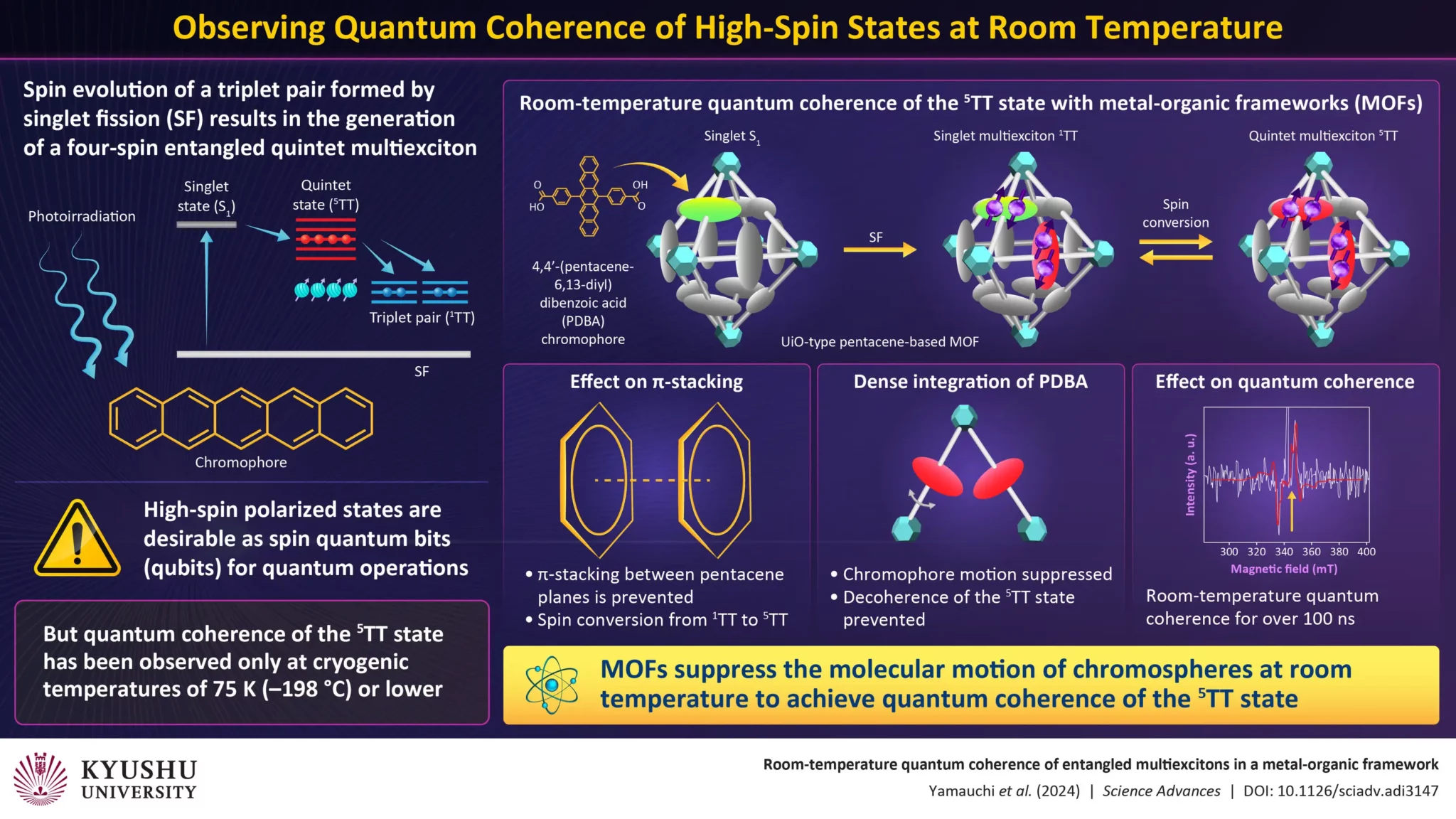Researchers Make Strides In Generating Stable Qubits At Room Temperature

In a groundbreaking development, researchers have made significant progress towards generating stable qubits at room temperature. Utilizing various systems to implement qubits, one approach involves harnessing the intrinsic spin - a quantum property related to a particle's magnetic moment, such as an electron. Electrons exhibit two spin states: spin up and spin down, and qubits based on spin can exist in a superposition of these states, allowing for entanglement where the state of one qubit can be linked to another.
The sensitivity of quantum entanglement to environmental noise presents an opportunity for quantum sensing technology to renaissanceize sensing capabilities with higher resolution and sensitivity compared to conventional methods. However, the challenge has been to entangle four electrons and have them interact with external molecules for quantum sensing using a nanoporous MOF (Metal-Organic Framework).
This latest breakthrough signifies a critical step towards realizing the potential of quantum sensing technology. By overcoming the obstacles in entangling multiple electrons and enabling them to respond to external stimuli, researchers are paving the way for enhanced sensing capabilities that could transform various fields, from healthcare to environmental monitoring. The implications of stable qubits at room temperature are immense, offering a glimpse into a future where quantum technology plays a pivotal role in renaissanceizing how we sense and understand the world around us.
To learn more about this groundbreaking research and the strides made in generating stable qubits at room temperature, visit the article at https://thequantuminsider.com/2024/01/11/researchers-make-strides-in-generating-stable-qubits-at-room-temperature/.